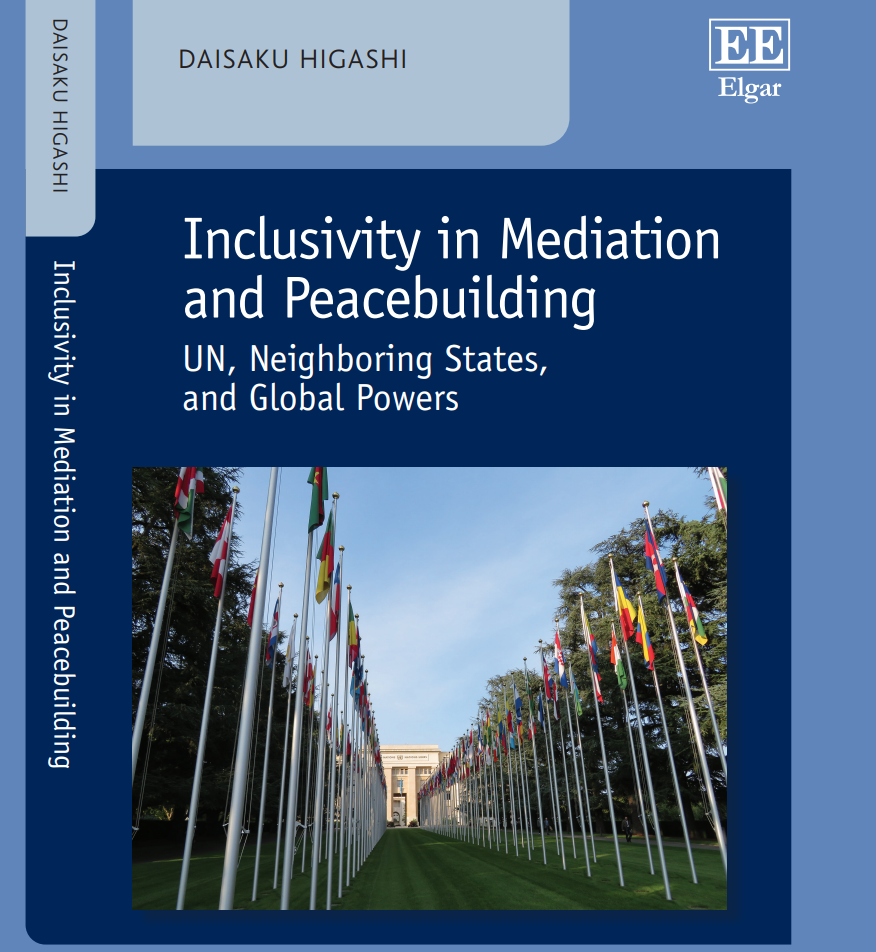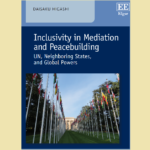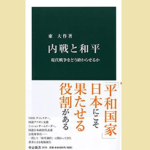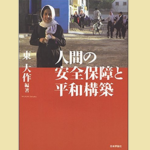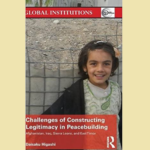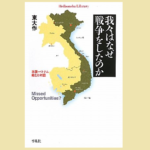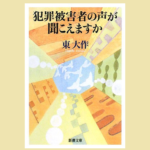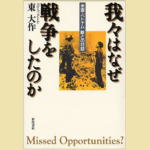“Inclusivity in Mediation and Peacebuilding: UN, Neighboring States, and Global Powers”(Edward Elgar Publishing)
| 題名 | Inclusivity in Mediation and Peacebuilding: UN, Neighboring States, and Global Powers The ACUNS Series on the UN System ACUNS (Academic Council on UN System=世界国連学会) 推薦図書 |
| 著者 | 東 大作 (単著) |
| 出版社 | Edward Elgar Publishing Ltd. |
| 出版年 | 2022年1月 |
| ISBN | 978-1800880511 |
| リンク | ウェブサイト(Edward Elgar Publishing Ltd.) |
More Inforamtion
This cutting-edge book illuminates the key characteristics of inclusivity in mediation during armed conflicts and post-conflict peacebuilding. Daisaku Higashi illustrates the importance of mediators taking flexible approaches to inclusivity in arbitration during armed conflicts, highlighting the crucial balance between the need to select conflicting parties to make an agreement feasible and the need to include a multiplicity of parties to make the peace sustainable. Higashi also emphasizes the importance of inclusive processes in the phase of post-conflict peacebuilding.
Higashi draws on first-hand experience as a team leader for reconciliation and reintegration in UNAMA, as well as interviews with leaders in conflicting states and UN missions, and recommends various roles for the UN, neighboring states and global powers in mediation during and after armed conflicts. Utilizing extensive field research and analysis, the book focuses on conflict regions in Afghanistan, South Sudan, Syria, Yemen, Iraq and East Timor to demonstrate the significance of addressing inclusivity in mediation and peacebuilding with different approaches.
Engaging with a range of empirical sources to make key policy recommendations, this book is crucial reading for practitioners working in mediation and peacebuilding, particularly UN officials, think-tank experts, government officials and NGOs. It will also benefit scholars and students of political science and international relations in need of unique, real-world accounts of global mediation, peacebuilding and conflict management.
Critical Acclaim
‘”The more the merrier” is the usual approach for mediation and peacebuilding, but Daisaku Higashi’s wide-ranging field research identifies the pay-offs from a far more nuanced approach to inclusivity. His compelling recommendations are tailored for the UN, regional organizations, neighbors, and major powers.’
Thomas G. Weiss, CUNY Graduate Center, US
Contents
- Introduction: civil wars and inclusivity
- Debates on inclusivity in mediation and peacebuilding
- Challenges of inclusivity in peace negotiations: the case of South Sudan
- Challenges of inclusivity in peace negotiations: the case of Afghanistan
- The role of the UN, neighboring states, and global powers in mediation: the case of Syria
- The role of the UN, neighboring states, and global powers in mediation: the case of Yemen
- Inclusivity in post-conflict peacebuilding: the cases of Iraq and East Timor
- Conclusion: theoretical contributions, policy implications, and remaining questions Index
-
 2024年7月19日:“The Evolution of International Cooperation and the Open Access International Order”(講師:Dr.Phillip Y. Lipscy, Univ. of Toronto)
2024年7月19日:“The Evolution of International Cooperation and the Open Access International Order”(講師:Dr.Phillip Y. Lipscy, Univ. of Toronto)
-
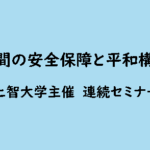 2024年7月16日:2024年度「人間の安全保障と平和構築」連続セミナー第5回「世界中で難民支援、平和構築支援に携わって」(講師:山本理夏NGOピースウィンズ・ジャパン事務局長)
2024年7月16日:2024年度「人間の安全保障と平和構築」連続セミナー第5回「世界中で難民支援、平和構築支援に携わって」(講師:山本理夏NGOピースウィンズ・ジャパン事務局長)
-
 2024年7月2日:2024年度「人間の安全保障と平和構築」連続セミナー第4回「国連と人間の安全保障とSDGs」(講師:弓削昭子 元UNDP管理局長)
2024年7月2日:2024年度「人間の安全保障と平和構築」連続セミナー第4回「国連と人間の安全保障とSDGs」(講師:弓削昭子 元UNDP管理局長)
-
 2024年6月20日:雑誌「週刊文春WOMAN」2024年夏号『検証 年表で見る1990年代【国際】世界は平和に向かうはずだった』(解説)
2024年6月20日:雑誌「週刊文春WOMAN」2024年夏号『検証 年表で見る1990年代【国際】世界は平和に向かうはずだった』(解説)
-
 2024年6月11日:2024年度「人間の安全保障と平和構築」連続セミナー第3回「JICAの平和構築への挑戦~国際機関との連携も含めて~」(講師:安藤直樹JICA理事)
2024年6月11日:2024年度「人間の安全保障と平和構築」連続セミナー第3回「JICAの平和構築への挑戦~国際機関との連携も含めて~」(講師:安藤直樹JICA理事)
